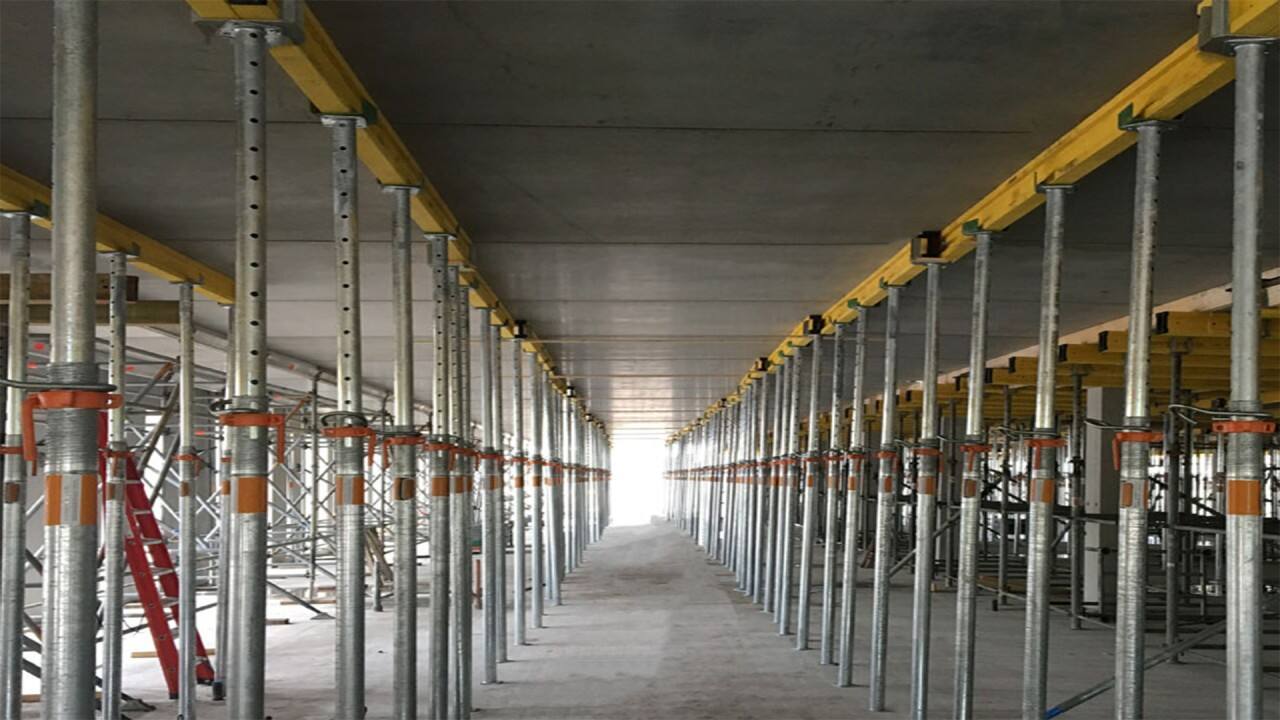The Evolution of Modern Construction with Steel Structures
The construction industry has witnessed a remarkable transformation with the advent of workshop steel structures, revolutionizing how we approach building design and execution. These engineered marvels combine strength, versatility, and cost-effectiveness, making them the preferred choice for contemporary construction projects. Workshop steel structures represent the perfect fusion of innovative engineering and practical functionality, delivering solutions that stand the test of time.
The remarkable surge in workshop steel structure adoption across various sectors stems from their inherent advantages and ability to meet diverse construction requirements. From manufacturing facilities to storage warehouses, these structures have proven their worth in countless applications, demonstrating why they've become a cornerstone of modern construction methodology.
Key Benefits of Workshop Steel Structures
Superior Structural Integrity and Durability
Workshop steel structures excel in providing unmatched structural strength that significantly outlasts traditional building materials. The high tensile strength of steel ensures these structures can withstand extreme weather conditions, heavy loads, and various environmental stresses. Modern steel manufacturing processes incorporate advanced treatments and coatings that enhance corrosion resistance and extend the structure's lifespan.
The durability of workshop steel structures translates into minimal maintenance requirements and reduced long-term costs. Unlike conventional building materials that may deteriorate over time, steel maintains its structural integrity for decades, making it an excellent investment for long-term construction projects.
Cost-Effective Construction Solutions
The economic advantages of workshop steel structures extend beyond initial construction costs. These structures offer significant savings through reduced construction time, lower labor requirements, and minimal waste generation. The precision-engineered components arrive ready for assembly, eliminating the need for extensive on-site modifications and reducing project timelines significantly.
Additionally, the recyclable nature of steel makes these structures environmentally responsible choices, often leading to tax benefits and compliance with green building standards. The reduced insurance premiums associated with steel structures' fire-resistant properties further enhance their cost-effectiveness.
Design Flexibility and Customization Options
Architectural Versatility
Workshop steel structures offer unprecedented design flexibility, allowing architects and engineers to create spaces that perfectly align with specific requirements. The inherent strength of steel enables the construction of large, column-free spaces ideal for workshops, warehouses, and manufacturing facilities. This versatility extends to aesthetic considerations, with modern steel structures incorporating various finishing options and architectural elements.
The adaptability of workshop steel structures makes them suitable for diverse applications, from industrial facilities to commercial spaces. Their modular nature allows for future modifications and expansions, ensuring the structure can evolve with changing business needs.
Advanced Integration Capabilities
Modern workshop steel structures seamlessly integrate with various building systems and technologies. From sophisticated ventilation systems to advanced lighting solutions, these structures accommodate modern infrastructure requirements effortlessly. The ability to incorporate energy-efficient features and sustainable technologies makes them ideal for contemporary construction projects focused on environmental responsibility.
The integration capabilities extend to smart building technologies, allowing for automated climate control, security systems, and energy management solutions. This adaptability ensures workshop steel structures remain relevant and functional well into the future.
Construction Speed and Efficiency
Streamlined Assembly Process
The prefabricated nature of workshop steel structures dramatically reduces construction timelines compared to traditional building methods. Components arrive at the construction site pre-engineered and ready for assembly, minimizing on-site labor requirements and potential delays. This efficient process ensures projects stay on schedule and within budget constraints.
Advanced manufacturing techniques ensure precise component fitting, reducing assembly time and eliminating common construction challenges. The standardized nature of steel components also facilitates easier quality control and project management.
Reduced Weather Dependencies
Workshop steel structures offer significant advantages in terms of weather-independent construction. Unlike traditional building methods that may face delays due to adverse weather conditions, steel structure assembly can proceed in various weather conditions. This reliability in construction scheduling helps project managers maintain tight timelines and reduce costly delays.
The ability to continue construction in different weather conditions also ensures better resource utilization and labor efficiency, contributing to overall project success.
Environmental Benefits and Sustainability
Eco-Friendly Construction Choice
Workshop steel structures align perfectly with modern sustainability requirements. Steel's recyclability makes it an environmentally responsible choice, with most structural steel containing a significant percentage of recycled content. The precision manufacturing process also minimizes waste generation, contributing to greener construction practices.
These structures support various green building initiatives, from energy-efficient designs to sustainable material usage. Their longevity reduces the need for frequent replacements, further minimizing environmental impact.
Energy Efficiency Features
Modern workshop steel structures incorporate numerous energy-efficient features that contribute to reduced operational costs and environmental impact. The ability to integrate advanced insulation systems, natural lighting solutions, and energy-efficient HVAC systems makes these structures ideal for sustainable operations.
The thermal properties of steel, combined with proper insulation, help maintain stable indoor temperatures, reducing energy consumption for heating and cooling. These energy-saving features contribute to lower operational costs and improved environmental performance.
Frequently Asked Questions
How long do workshop steel structures typically last?
Workshop steel structures, when properly maintained, can last 50 years or more. Their durability is enhanced by modern protective coatings and treatments that prevent corrosion and deterioration, making them a long-term investment for construction projects.
Can workshop steel structures be customized for specific industry requirements?
Yes, workshop steel structures offer extensive customization options. They can be designed to accommodate specific industry needs, including specialized equipment, unique spatial requirements, and various operational configurations while maintaining structural integrity and safety standards.
What makes workshop steel structures more cost-effective than traditional construction?
Workshop steel structures provide cost savings through reduced construction time, lower labor requirements, minimal waste generation, and decreased maintenance needs. Their prefabricated nature and quick assembly process significantly reduce overall project costs and timeline.
Are workshop steel structures environmentally friendly?
Workshop steel structures are highly environmentally friendly due to their recyclability, energy efficiency, and minimal waste generation during construction. They support green building initiatives and can contribute to achieving environmental certification standards.






